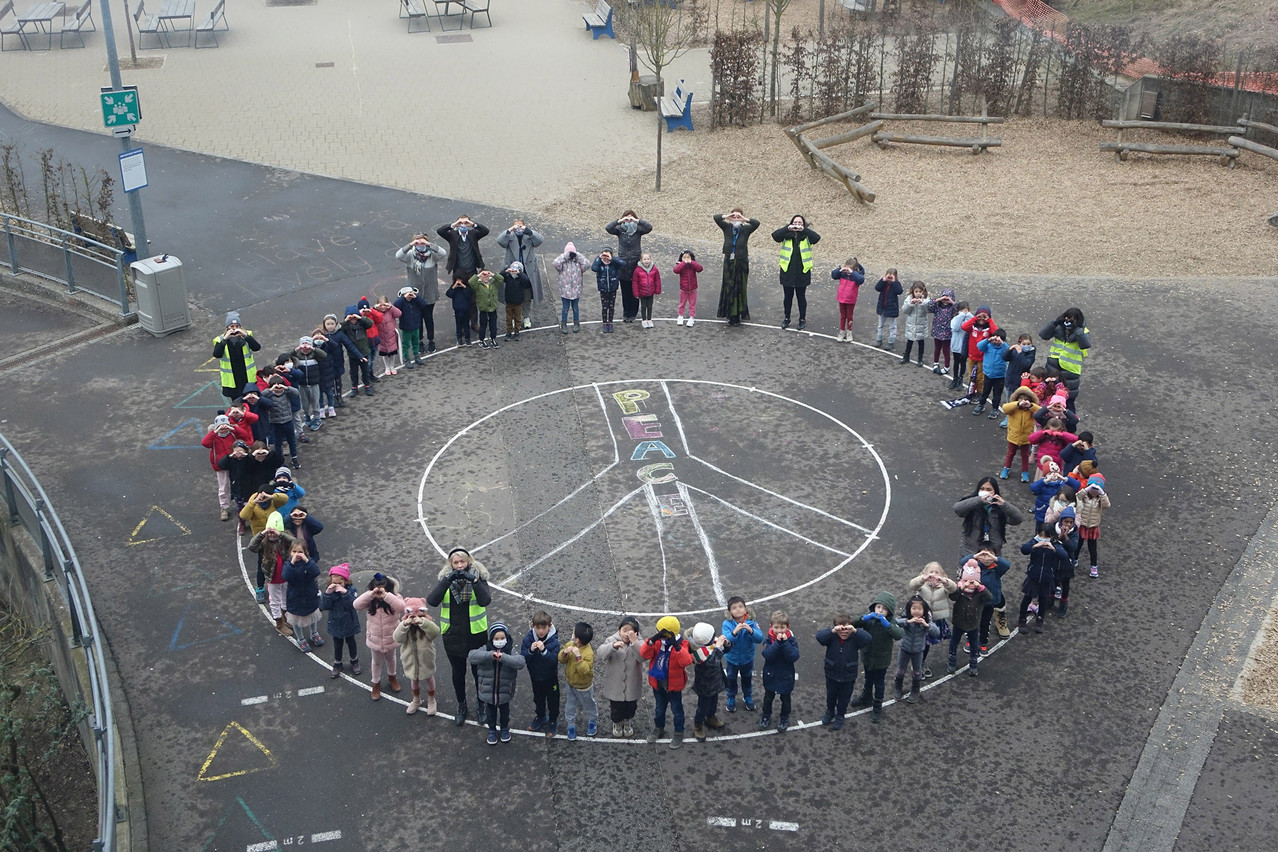“The question that the students have asked most loudly is, really, ‘how can I help? What can I do?’ They’re coming up with all sorts of ideas,” said Iain Fish, upper school principal at the International School of Luxembourg (ISL).
Since Russia on 24 February launched its attack, the school’s community has rallied together. “Having both Ukrainian students and Russian students, our focus has really been around promoting that intercultural understanding, and promoting unity and peace,” said ISL director David J. Condon.
With older students, the school has looked at what knowledge they need to better understand the war, how to talk about conflict and what preconceived biases there might be.
This isn’t some sort of video game.
With younger groups at secondary school level, there is an emphasis on empathy, ensuring they know how members of their community might be impacted. “They need to be guided to understand this isn’t some sort of video game,” said dean of students Alexander Rakochy. “We need to figure out how we can support each other.”
Even the youngest learners in the lower school are grappling with the crisis. “Kids are hearing parents talk; they are seeing things. For us, the role of the school right now is to provide a safe space, where the kids can say ‘I feel sad’ and express their emotions about what they might be seeing and hearing,” said Keryn Dowling, the lower school principal.
Understanding conflict
Dowling said an 8-year-old student had come to see her, asking how she could make her Ukrainian friend smile again. “She just wants to make her classmate feel better.” Teachers also talk with pupils about a donations’ drive at the school, why these supplies are needed. “It’s more about understanding conflict as a concept versus the specifics.”
Around 100 volunteers signed up to help at collection points that gathered 30 pallets of supplies, from medication and baby food to hygiene articles, sleeping bags and mats, batteries, flashlights, power banks, pet food and clothes.
Some of the goods will stay in Luxembourg to support refugees arriving from Ukraine, the rest will be sent to Poland with the help of a Luxembourg hospital that is also organising aid. Funds raised by students will be donated to the Red Cross.
From day one of the invasion, the school has made sure to check in with Ukrainian and Russian pupils, provide spaces for them to talk but also ensure that a sense of normality can provide comfort. And while the school has re-thought some of its “feelgood” events and activities, there is an overwhelming sense of having to operate in a safe, normal way.
“People feel powerless, and the kids aren’t excluded from that,” said Rakochy.
The experience of the covid-19 pandemic has helped the school respond quickly and efficiently, ISL director Condon said, with a crisis task force now dedicated to the Ukraine war and how to manage this within the school community.
Discussing the news
Luxembourg’s education ministry last week issued a leaflet to parents with guidance on how to speak with children about the war, saying it is important to highlight solidarity without concealing the facts. Children should be shielded from graphic news images and comforted, the leaflet says, adding that parents shouldn’t brush off questions or tell their children they wouldn’t understand as this only increases a sense of insecurity and fear.
With older children and teenagers, parents should discuss the news and information, verifying sources and searching jointly for answers to questions, the ministry says.
At St George’s International School, there is also an emphasis on working with older students on establishing true and reputable news sources. “Our role is to help the students navigate the news they’ve been seeing and how they feel about it,” said principal Christian Barkei. “We are mindful of the fact that for younger students the topic will need specific and careful handling.”
The best approach to these kinds of events is not to deny them but to bring them into discussion with sensitivity and tact.
At St George’s, like at ISL, the care for pupils of Ukrainian or Russian heritage has been increased, with daily check-ins from tutors. But staff overall are on alert to provide opportunities for students to talk about their feelings. “At the moment we are monitoring all students carefully to see whether any individuals need more support.”
A secondary student parliament has taken the lead to organise fundraising events in support of the LUkraine association. “These events are being coordinated for the students by the students,” said Barkei. For example, students will form a peace sign. They have also requested donations to LUkraine.
The school’s mission is to provide “clarify, reassurance and compassion”, the principal said, comparing the outbreak of war to the 9/11 attacks in 2001. “The best approach to these kinds of events is not to deny them but to bring them into discussion with sensitivity and tact.”
